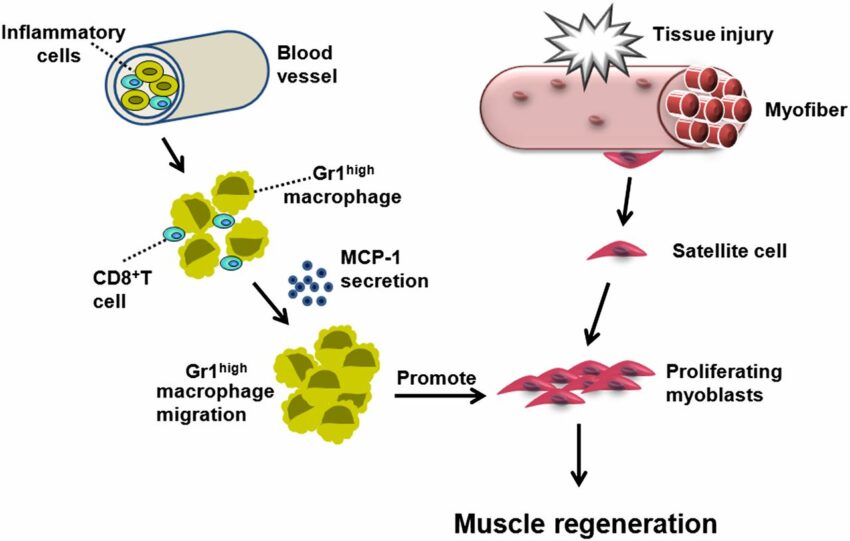A recent study led by Carlos Aguilar, an associate professor of biomedical engineering at the University of Michigan, has revealed that the lipid mediator Maresin 1 can significantly enhance muscle regeneration. Published in eLife, the study aimed to investigate how lipid mediators, known for their potent regulation of the immune response after injury, varied in cases of volumetric muscle loss (VML) injuries that either healed or resulted in fibrosis.
VML, an acute traumatic or surgical loss of skeletal muscle, leads to persistent inflammation followed by fibrosis. The mechanisms responsible for mediating the intensity and duration of the inflammatory response and subsequent fibrosis after VML are not well understood, which has limited the development of regenerative therapies.
“Our laboratory has long been interested in the field of muscle trauma, partly because this type of injury is more common than people think,” said Aguilar.
VML is responsible for over 90% of all muscle conditions that result in long-term disability, and there are currently no effective therapies available for this type of trauma.
“We sought to understand the cellular and molecular mechanisms that occur after this type of trauma in order to generate and test new therapeutic options,” added Aguilar.
When a muscle experiences VML, the immune response becomes dysregulated, leading to the formation of stiff and dense fibrotic scars that inhibit the muscle’s ability to heal or regenerate.
The team focused on a new class of signaling molecules called lipid mediators, which have previously demonstrated significant effects on immune reactions. In particular, they examined the effects of Maresin 1, a lipid mediator known to mitigate the behavior of inflammatory cells such as neutrophils and macrophages.
“Upon delivering Maresin 1 after VML, we observed a decrease in the number of infiltrating neutrophils and macrophages, as well as a reduction in fibrosis. Additionally, muscle force was found to increase after treatment with Maresin 1,” explained Aguilar.
The study’s findings suggest that lipid mediators, including Maresin 1, could potentially serve as therapeutic agents for severe muscle trauma.
“These results lay the foundation for investigating immunomodulatory treatments that can enhance muscle regeneration,” Aguilar noted.
Aguilar also praised the contributions of graduate students Jesus Castor-Macias and Jacqueline Larouche, who played an instrumental role in the research. “They are two amazing students who truly drove this study. I am extremely proud of their creativity in utilizing new mouse models and technologies to address these questions,” he said.
Note:
1. Source: Coherent Market Insights, Public sources, Desk research
2. We have leveraged AI tools to mine information and compile it

